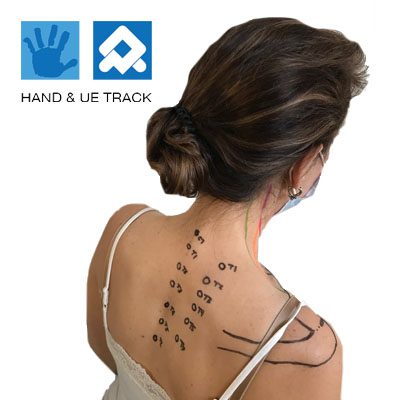Systematic Evaluation and Treatment of TOS CTJ – Charleston SC – Mar 2025
Course Description
15.25 Education Hours
1.525 AOTA CEU’s
This course will facilitate therapists’ confidence in identifying and treating patients who present with adverse neural tension in the upper extremity. Course content covers clinical testing for disputed neurogenic thoracic outlet syndrome (TOS) and treatment techniques for the 3 biggest impairments related to neurogenic TOS: 1st rib elevation, poor scapular positioning, and posterior shoulder tightness. Therapists will perform specific clinical testing, assessment and treatment of the 1st rib and posterior shoulder, as well techniques to improve resting scapular position and dynamic control to optimize blood flow to the upper extremity. If you treat patients with distal nerve compression syndromes, this course provides valuable information to optimize your clinical results!
Target Audience: OT, COTA, PT, PTA.
Educational Level: Intermediate
course outline – H&UE thoracic

Instructional Method
Our live courses are made up of lectures that are taught through audiovisual systems (Power Point / Keynote), and all course information is sent to participants before the starting day of the actual course for further review and discussion. The hands-on section is carried out through demonstration of techniques performed by the instructors, and then replicated by the participants under instructors’ supervision, guidance, and feedback. The hands-on section is evaluated by the instructors using an observable skills rubric.
Objectives and Goals
- Compare the 3 main passageways that can be involved with Thoracic Outlet Syndrome (TOS): scalene triangle, costoclavicular space, and thoraco-coraco-pectoral space through drawing matching surface anatomy on partners. (Foundational Knowledge)
- Differentiate the two types of neurogenic/intermittent TOS clinical presentations: “compressors”: those who experience intermittent traction on the brachial plexus with overhead functional activities and “releasers”: those who experience more of their symptoms at night with sleep/rest. (Foundational Knowledge, OT Service Delivery)
- Execute a clinical examination including the occupational profile and the following special tests: Roos test (Elevated Arm Stress Test), Cyriax release test, & Cervical Rotation Lateral Flexion test. (OT Service Delivery)
- Demonstrate how to test and treat 1st rib limitations associated with TOS. (OT Service Delivery)
- Distinguish between the different scapular faults and posterior glenohumeral capsule limitations that can contribute to TOS problems and interpret findings for treatment intervention planning. (Foundational Knowledge, OT Service Delivery)
- Critique positions used for occupations that are mechanically harmful for the different presentations of TOS and create a selective treatment plan to reduce intermittent nerve compression based on evidence-based understanding of biomechanical principles. (OT Service Delivery, Foundational Knowledge)
Pre-approved in the following states
Contact info@iaom-us.com to verify approval in your state. Please contact us if you hold a Florida license.
For Pre-Approvals see the PDF - Continuing Education Accreditations & Approvals Requested and/or Received by Organization: Download PDF File
Disclosures:
- Financial: The instructor(s) receive an honorarium for presenting this course.
- Non-financial: The instructor(s) have no relevant non-financial relationships to disclose.
- Partial credit is not available. For online courses, passing module assessments and completing the course evaluation is required to earn continuing education credit. For live courses, attendance is confirmed by signing the attendance sheet at the course; ensure name and professional license number are accurate, and initial both morning and afternoon attendance.
Course Location
Tricom Street, North Charleston, South Carolina, 29406, United States
Instructor

Ann Porretto-Loehrke
Instructor

James Wagner
Check In
Instruction Hours
8:00 am – 6:30 pm
8:00 am – 3:00 pm
Price
- $649
| I understand it is my responsibility to confirm the IAOM-US has CCUs approved for this course in my state and/or inform IAOM-US what is required to obtain CCU approval. Please review our policies for Refunds, Cancellations, EULA |

